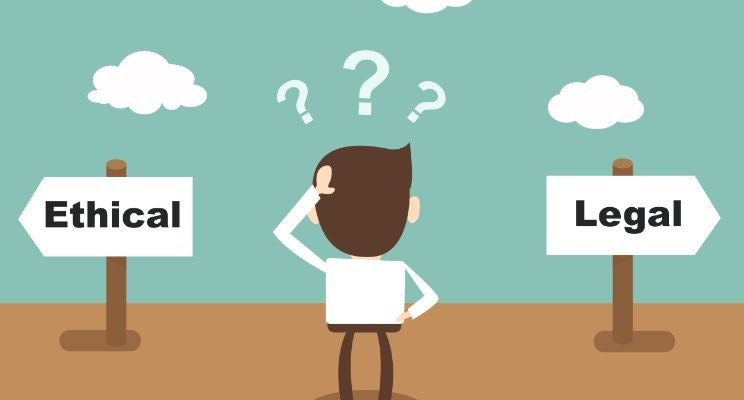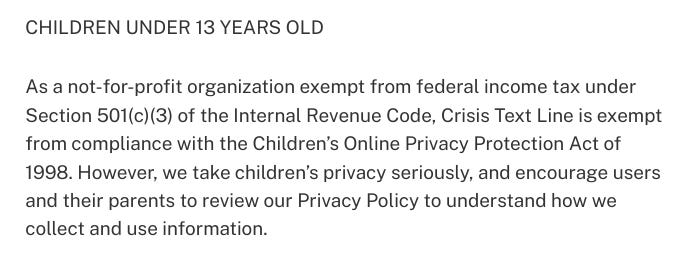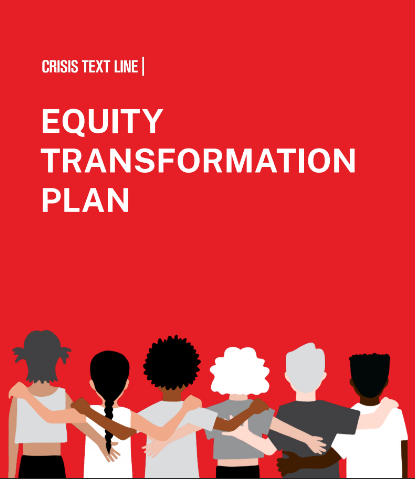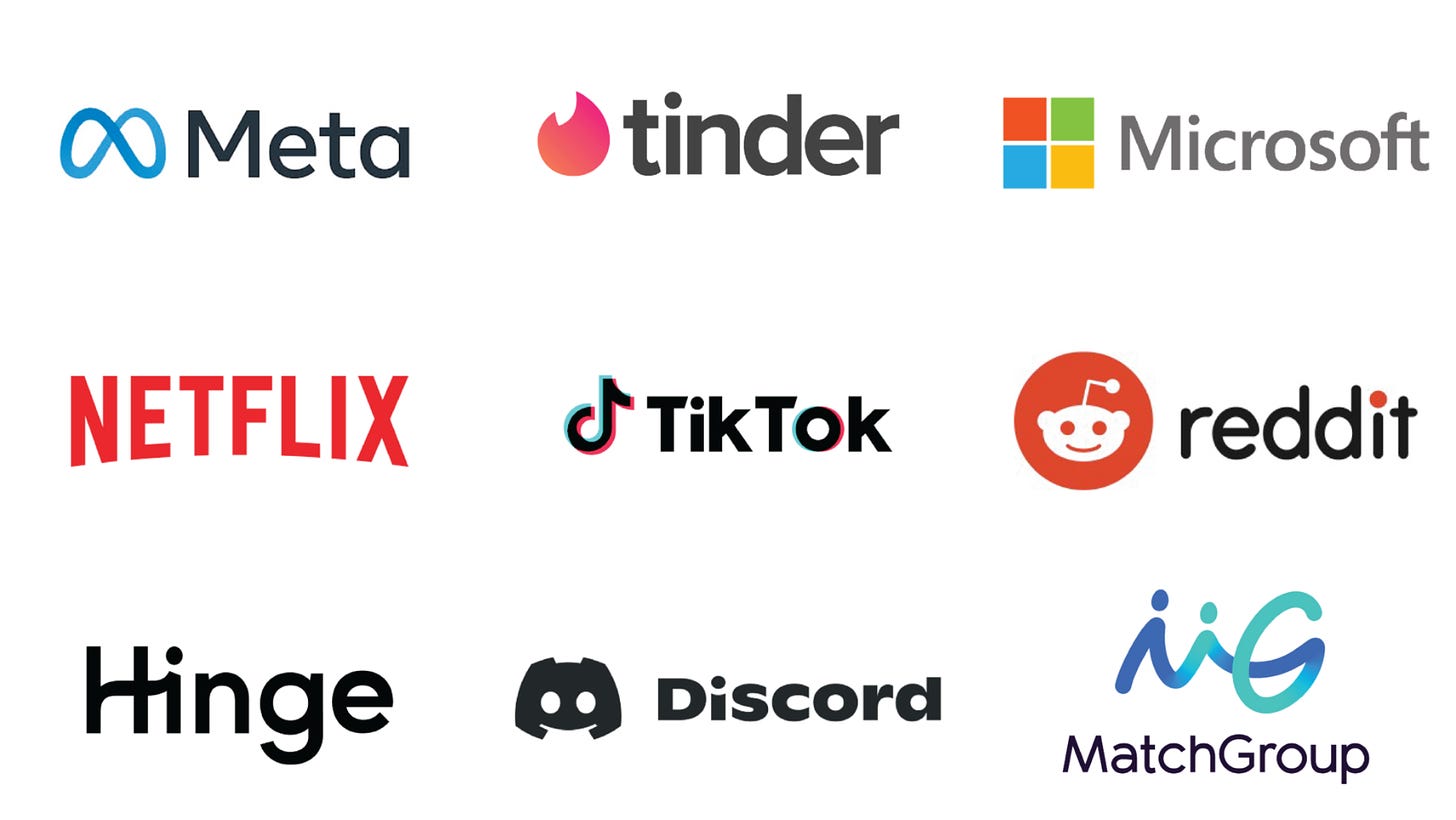The STOPit App, marketed as anti-bullying and suicide prevention, has exploded in multiple school districts across central Indiana. Nationally, well over 4 million K-12 students now have access to either the Android or iOS STOPit Mobile App platform, or via their school-issued devices, like Chromebooks.
Sounds like a laudable effort, so far, right?
STOPit is part of a growing category of 2-way, text-based Anonymous Reporting Systems. It is largely funded in the public school setting via grants from the US Dept of Justice and the US Dept of Homeland Security. (Some programs in the past were funded with Covid grants under CRSSA and ESSR.) Each of these grants comes with its own provisions and parameters which are critical to note.
A basic contract offers a student round-the-clock access to the 2-way, text-based Anonymous Reporting System (ARS) as well as the Crisis Text Line ™, STOPit Enhanced SEL Curriculum, and STOPit’s Safety and Wellbeing Training.
Additionally, the school may opt to use STOPit’s “Bark” web filtering technology. It’s a cloud-based system that “scans, monitors, and filters devices, networks, and internet activity for signs of violent, unsafe, or harmful behaviors, and alerts school officials to intervene”. More information can be found here.
Undoubtedly, your child’s school is using some type of web surveillance technology. They are not created equally, and parents should be aware of the pitfalls of each.
The Semantics Shell Game Strikes Again
In a previous blog post, I presented multiple facts that counter the consistent claim of user anonymity. Like many terms used in education, common understandings are often used to conflate an idea, when the usage has morphed contexts. In this case, a very narrow, outdated legal definition is perhaps being utilized. Black’s Law Dictionary defines ‘anonymous’ as:
“Nameless; wanting a name or names. A publication, withholding the name of
the author, is said to be anonymous.”
To be clear, the STOPit App, and many other 2-way “Anonymous” Reporting Apps like it, use a variety of technologies to collect Personally Identifiable Information (PII) such as:
IP Address
Browser, Operating System & Device/Hardware Details
Location of User
Referring URL
Activities/ Use of Websites and Apps
Date and Time of Visit
Many, many more
However, since a name is not required of the user, it appears that the App Developer gets a pass on using the term “anonymous”.
Unfortunately, Data Privacy Laws are woefully inadequate and antiquated. There are big dollars to be made in both “School Safety” and data mining of children. EdTech is polluted with multiple questionable actors in a Wild West environment. Innovative types know that Legislators, K12 Administrators, and School Boards lack the knowledge, or more importantly, gumption, to set adequate privacy guardrails or properly vet the many products on the market.
To be sure, data is being skimmed by the multiple STOPit products and services. Any of these data points could be used to identify the user. The very personal reports and data derived by “anti-bullying & suicide prevention” work would inherently contain identifying factors.
Where is the data being upload
ed to? How many parties ultimately have access to it? How long will it be stored? Is it secure? What are the recourses in the event of a data breach?
While the representation of “anonymous” reporting may pass a legal threshold, is this an ethical representation to children? Let alone children experiencing a crisis?
How (NOT) to Choose a Counselor for Your Child
Unfortunately, the revelations about STOPit just go from bad to worse.
As mentioned, students have access 24/7/365 to Crisis Text Line™ Counselors. What was not immediately evident, is that these “counselors” are obtained from an outsourced organization, with their own privacy policy, terms and conditions, and mission statement.
Also not made crystal clear, Crisis Text Line ™ (CTL ) Counselors are not licensed professionals. They are minimally trained volunteers, steeped in activism. According to CrisisTextLine.org volunteers receive 30 hours of online training and are ready to begin receiving texts from the platform. The volunteer commitment is 100% text-based and can be completed from home, or virtually anywhere.
The website states that Supervisors have “Master’s degrees in a relevant field (or commensurate crisis intervention experience)” but does not explicitly state if they are Licensed Professionals in their field of Practice. Crisis Text Line ™ Counselors are expected to adhere to the Code of Conduct & the Volunteer Terms of Service & Privacy Policy.* The rigor of the supervision is unknown. *The website does not provide a complete Volunteer Terms of Service.
The opening paragraph of the Code of Conduct includes the statement: “Cooperation and an open mind are expected.” It goes on to emphasize the organizational “commitment to diversity, equity, and inclusion”, and vaguely states that there will be no tolerance of “hateful behavior or bigotry”. Notably, it suggests that “if (client) pronouns are not evident we recommend the use of gender-neutral pronouns (they/them/theirs/elle).”
Parents should be aware of this statement included under the “More Legal Stuff” tab of the Privacy Policy.
CTL goes out of its way to provide a disclaimer for the outdated and inadequate 1998 Children's Online Privacy Protection Act (COPPA), yet claim they take children’s privacy seriously. It appears the only thing they take seriously is their own liability.
Additionally, this article from 2022 points out a very ugly situation in which CTL made a highly unethical commercial data transfer arrangement with Loris AI. Despite the claims of data scrubbing, very intimate message data was being shared to third parties without the understanding of the caller. CTL “fired” the whistleblower volunteer.
Is it Mental Health? Activism? Or “Mental Health Activism?”
“Mental Health.” “Activism”. These are concepts that should never be confused, let alone be muddled into an organizational mantra. Alarmingly, that is exactly what has happened at Crisis Text Line ™, the newly trained proteges are awaiting your child's text in a moment of deep personal crisis.
To be fair, this bleed-over of ideology and politics is an insidious problem plaguing the larger mental health profession. It is evidenced in the pages of the CTL organizational literature. This video “A Conversation With Student-Athlete and Mental Health Activist, Christian Arrington” is a great example of the blurred lines of social activism vs. evidence-based therapeutic care. The video includes discussions of toxic masculinity and recounts his experiences of trauma and self-care methods as a black male/ BIPOC. (BIPOC is a group identity title referring to those identifying with Black, Indigenous, or People of Color groups. )
CTL’s “Equity Transformation Plan” gives a detailed vision and plan for the organization, volunteers, and “texters”. The document can be viewed here Equity Transformation Plan External.pdf
“Centering Equity” is placed at the forefront of the organizational vision. CTL defines this as: “Orienting practices, processes, and policies to advance racial equity such that ultimately race has no influence on how one fares in society”. So that there is no confusion, they further define equity as “systems that allocate resources and opportunities needed for an equal outcome”. (Emphasis mine.)
The verbiage contained in this document is deeply concerning. Intersectionality teaches volunteers and staff to see their patient clients not as individuals with highly variable therapeutic needs, but as avatars of their gender, race, and ethnic groups. Equity is a driver of systems that support a pre-determined outcome that may or may not reconcile with objective reality on many fronts.
These are two organizational service “Measures of Progress”. Note that goals uniquely center on two populations, BIPOC and Non-Binary (or Gender Non-conforming).
To accomplish its Equity vision, CTL intends to “advance diverse ideas and opinions”. Is that the appropriate objective of a therapy-minded institution, especially one with a pediatric audience?
If you wondered about their stance on Gender Affirmation, perhaps insight can be gained from this statement: “At the intersection of empathy and innovation — we promote mental well-being for people wherever they are.” This is followed by “Expand the vision of what is possible”. “Gender Non-Conforming” individuals are mentioned multiple times in the document.
As a Conservative Parent, there is nothing here that would lead one to expect that a framework of traditional values would be honored by this organization.
A Way Around the Law?
If you live in a state that recently banned Gender Affirming Care (GAC) for minors, read up! SEA 480 was passed by the Indiana General Assembly in the 2022-2023 Session and prohibits GAC by physicians and health practitioners at any stage, including hormone therapy, surgeries, and psychological GAC therapies.
CTL is careful not to state bright line rules on its website, however, it appears that they would err on the gender-affirming side if they were to be contacted by a gender-dysphoric child in crisis.
Further, parents should be familiar with the terms that state Crisis Text Line ™ Counselors are under obligation to abide only by NY State Law.
“These Terms, our Privacy Policy, and our Services are governed solely by and will be interpreted according to, the laws of the State of New York.”
They are also careful to state that their services should not be construed as:
“professional health care, mental health treatment, psychiatric care, therapy, medical advice, diagnosis, or treatment of any kind. “
Just to be perfectly clear, they are off the hook for any conceivable liability.
So Many, Many Issues….
The activist nature of CTL is nowhere more evident than in the Issue Briefs offered on the website. The line between mental health and activism should never be blurred, especially with youth. Statements like “we recognize the distinct connection between societal issues, like gun violence and climate change, and our mental health,” simply serve as a reinforcing catalyst of anxiety.
The “issues” offered by CTL are interchangeable cogs for any given individual. Of course, given continual stimuli on any particular topic, anxiety and/or depression could be driven disproportionately. When we look not at individuals, but use an Intersectionality lens, we can apply “issues” to large swaths of groups, based on “identity”. At best, “Mental Health Activism” is a very precarious ethical tightrope.
The worldviews represented in these briefs should give Conservative, Christian, and/or 2A supporting, law-abiding gun-owning parents great pause if their child were to connect with one of the Crisis Text Line ™ “Counselors” in a moment of distress.
Would a non-affirming home environment be deemed “unsafe”? What about one with firearms? Would it trigger a call to CPS? Or a referral to another social service provider? Would parents be informed if a child were given a referral to a service like Trevor Project?
Listed here is a sampling, however, all of the “Issue Briefs” listed on the website are decidedly skewed to left-leaning audiences.
Who are the Volunteers?
The demographics of the Volunteers are unknown. However, it appears that students are the lifeblood of the organization.
The “Student Learning Program” is available at 14 Universities for Master’s level students in social work or other mental health degree programs. A combination of volunteer Crisis Counselors and practicum students who all work remotely help maintain the text line service.
CTL also recruits undergraduate college students to be “Campus Advocates” to advance their programs and initiatives on campuses across the nation. The organization works hard to demonstrate Inclusivity and Equity in their recruiting practices. This intake form includes a survey with fourteen gender choices.
The Company You Keep
Crisis Text Line ™ has many sponsorships and partnerships in both the Corporate and Non-Profit sectors. A few industries and/or organizations seem to jump off the page.
Now, imagine during an especially stressful period with your adolescent child, you arrived at the office of a new mental health counselor, and in the waiting room were representatives from each of these companies with their logos emblazoned on their lapels. Would you be concerned? This is a sampling of Crisis Text Line ™ “partners”.
What data is being shared with these companies? CTL acknowledges that they help their partners “by providing aggregated, anonymized summary insights about their communities of concern, such as how many people are seeking help, key issues related to their crises, and what helps them feel better.”
Again, “anonymized”. What exactly does that mean?
Interestingly, CTL offers this “Issue Brief” on Social Media in which the author twists themselves into a pretzel to spin the positive aspects of SM for youth. They conclude by acknowledging the possibility of negative effects, but state SM platforms “can also provide meaningful connection and a positive outlet for online engagement. Additionally, these platforms enable reaching out seamlessly for mental health support and help.”
Perhaps that argument can be made in a few cases. However, it’s also fair to say that the overwhelming consensus among sentient adults is that more harm than good has come as a result of minors having access to social media.
Data Collection, Tracking, and Storage
Where is the data being uploaded to? Where is it being stored? For how long? Privacy laws are outdated and inadequate.
These are all questions that, for now, are buried in layers of technical confusion and bureaucracy. The app is presented as pro-health and safety, but on further inspection contains a potential minefield of risk for students and families.
That risk grows exponentially larger for Conservative, and/or Christian families. The weaponization of law enforcement is a real concern in this context. There are far more questions than answers.
A child in a distressing circumstance, who has been given the false expectation of anonymity, is certainly not capable of discerning the cacophony of events that could arise from tech-weaponized, ideologically motivated do-gooders.
Amazingly, these 2-way “Anonymous” Reporting Apps are being implemented across the country with zero evidence of efficacy.
What is noted repeatedly is the use of fear to leverage the implementation of Reporting Apps and other “mental health” programs. Parents are repeatedly told via School Administrators, Counselors, and Public Service Announcements that the risks of bullying and suicide are high and that mental health among youth is in crisis.
Are we really willing to give away our children’s privacies and freedoms so easily?
All links in order of appearance:
https://www.stopitsolutions.com/why-stopit
https://www.stopitsolutions.com/privacy
https://www.crisistextline.org/become-a-volunteer/
https://www.crisistextline.org/code-of-conduct/
https://www.crisistextline.org/volunteer-terms-of-service-privacy-policy/
https://www.ftc.gov/legal-library/browse/rules/childrens-online-privacy-protection-rule-coppa
https://www.theverge.com/2022/1/31/22906979/crisis-text-line-loris-ai-epic-privacy-mental-health
https://drive.google.com/file/d/1dZ-32yJ6MEdRtQCml8dpqef8MRnqETMX/view
https://www.crisistextline.org/terms-of-service/#terms-2
https://www.crisistextline.org/issue-briefs/
https://www.crisistextline.org/climate-change-and-mental-health/
https://www.crisistextline.org/gun-violence-and-mental-health/
https://www.crisistextline.org/abortion-reproductive-rights-and-mental-health/
https://go.crisistextline.org/CampusAdvocateSignup
https://www.crisistextline.org/partnerships/
https://www.crisistextline.org/data-philosophy/
https://www.crisistextline.org/the-impact-of-social-media-on-youth-mental-health/










